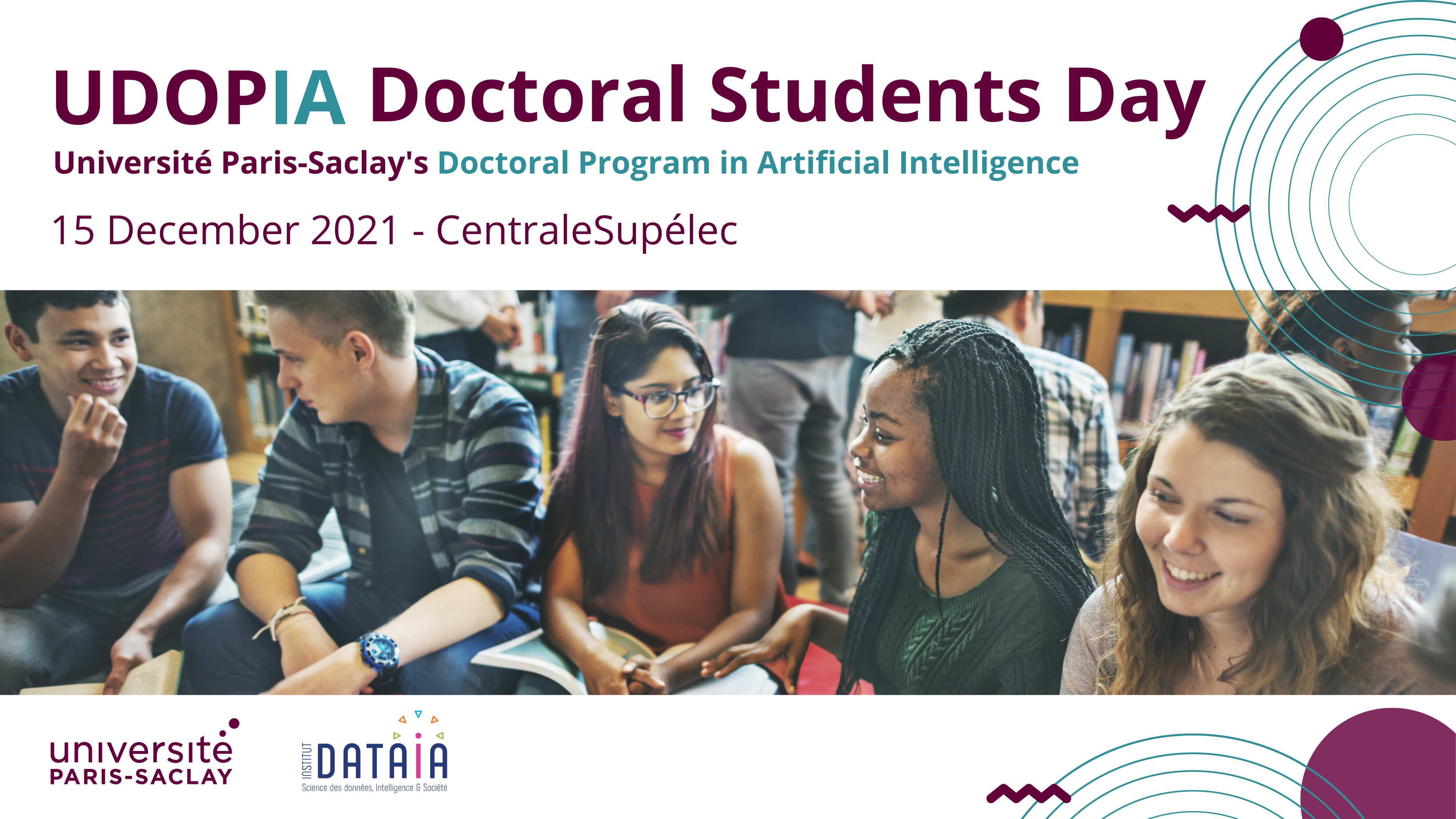Winner of the call for programmes "doctoral contracts in AI" launched by the French National Research Agency (ANR) in June 2019, the UDOPIA programme already gathers a community of more than 60 PhD students.
This day-long event organised by and for students aims to federate the growing community of young researchers in AI within the perimeter of the Université Paris-Saclay.
This event is open to the entire community of young researchers in AI within the perimeter of the University of Paris-Saclay and in particular to students whose thesis project has been accredited under the UDOPIA programme.
Programme
* Participants who sent us a presentation.
|
9 am |
Welcome |
|
9:20 am |
Opening - Frédéric Chazal, Director of the DATAIA Paris-Saclay Institut |
|
9:30 am |
Ice Breaker |
|
9:45 am |
Pitchs Promo 2020 – Session 1 (10’ each + questions) Moderator : Alice Lacan
|
|
10:45 am |
Break |
|
11 am |
Keynote Speech
|
|
12 am |
Lunch |
|
1:30 pm |
Pitchs Promo 2021 – Session 1 (5’ each + questions) Moderator : Arnaud Maury
|
|
2:30 pm |
Guest Speakers
|
|
2:50 pm |
Pitchs Promo 2020 – Session 2 (10’ each + questions) Moderator: Atilla Alkan
|
|
4:10 pm |
Energizer |
|
4:30 pm |
Pitchs Promo 2021 – Session 2 (5’ each + questions) Moderator: Mathieu DAGRÉOU
|
|
5:30 pm |
Closing |
Registrations
Doctoral students: register now by filling the form.
Thesis Director: register by sending an email to com-dataia@inria.fr






